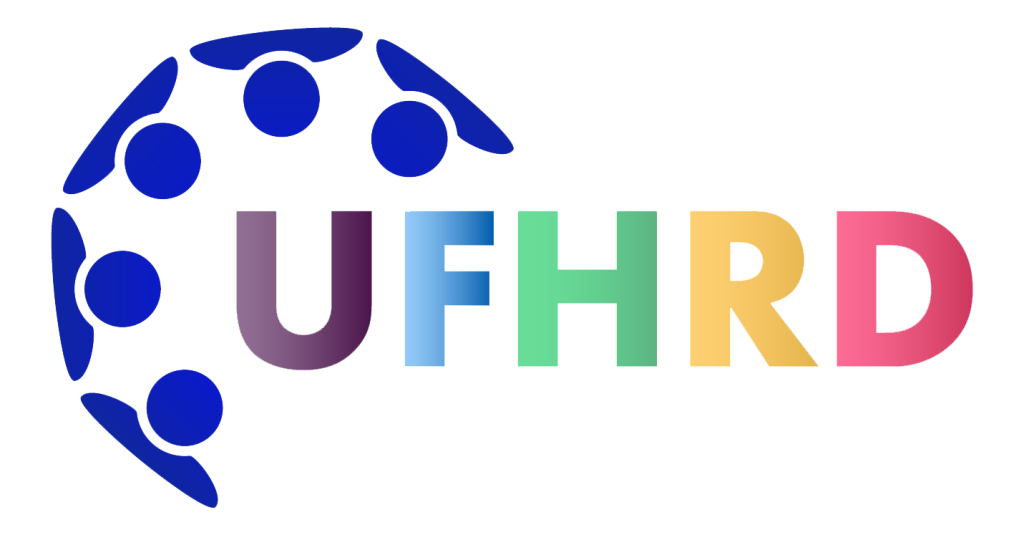REDE DO EMPRESÁRIO & BSN EDUCATION AND TRAINING EVENT
- 12-14 June, 2024
- Lisboa
University Forum for Human Resource Development Conference 2024
Human Resources Development in a Digital Age

THE CONFERENCE
The 24th Edition of the UFHRD Conference to be held in Lisbon, in June 2024, will be an extraordinary opportunity for learning, researching and networking.
CLICK HERE
Call of Papers
CLICK HERE
Call of Papers
focussing on
Learning in SMEs in a time of Volatility and Disruption
Call of Papers: 1st July, 2024
Please contact any of the Guest Editors for some information:
Dr. Heather Short - heatheribshort@gmail.com
Prof. Maura Sheehan - m.sheehan@napier.ac.uk
Dr. Corina Sheerin - Corina.sheerin@ncirl.ie
Main Topics
- Talent and Leadership Development
- Coaching and Mentoring
- Global, Comparative and Cross-Cultural Dimensions of HRD
- Employee Engagement
- Critical, Social and Diversity Perspectives in HRD
- Workplace Learning, Training and Development
- Learning in Small and Medium Sized Enterprises (SMEs)
- Learning and Education and Practitioner Research
- Transformational HRD in a Digital Era
PROGRAM
KEY DATES
Calls for submission, Dates for abstract submission and decision
30th September
Call for papers
15th February
Final date for abstract submission
18th February
Decision notification to authors
12th May
Full papers submission
30th March
Early bird registration closes
31st May
Conference registration closes
12th – 14th June
UFHRD 2024
REGISTRATION
Early Bird registration
until 30th March 2024
320€
(1 article)
Full Delegate Fee
after 30th March 2024
370€
(1 article)
Doctoral
150€
(1 article)
Gala Dinner
70€
LOCATION


WHERE TO STAY
TURIM HOTELS
The Promotional Code is valid for UFHRD participants, for stays between 13th and 15th June 2024. 10% Discount on BAR.
VIPS HOTEL
Conditions valid for UFHRD participants, for stays between 10th and 16th June 2024. Prices between 151€ and 165€ per room/night. Buffet breakfast included. VAT included. City taxes not included.
ISCAL
ISCAL is a public higher education institution, integrated into the Polytechnic Institute of Lisbon (IPL). Is focused on the creation, dissemination of culture, science, technology, and transmission of expertise and professional knowledge by integrating study, research and experimental development.
Numbers
Founded in 1759, ISCAL has an Academic Population of more than 3500 students and over 200 professors, an Academic Offer of 5 Bachelor Degrees and 7 Master Degrees, and its outcomes are +97% Employment Rate and +80% of Academic Success Rate.
Fields
The main fields of study at ISCAl are: Accounting and Administration, Business Management, International Business, Corporate Finance, Taxation, Law studies and Auditing.
Outcomes
Bringing innovative training methods, such as simulation projects, the learning outcomes that ISCAL provides are consistently improving the necessary knowledge and skills related to professional success.
Mission
ISCAL's mission is to produce, use and disseminate knowledge, as well as provide services to the community, contributing to its consolidation as an exemplary institution at national and international level.
Vision
ISCAL's institutional vision is to excel in its activities, with a view to continuous improvement of their quality, promoting the conditions for a relevant professional practice by highly qualified graduates.
Conference Organizing Committee and Infrastructure
Academic leadership
Pro-Rector Maria José Sousa
Administrative support
ISCTE staff
- Acting a point of contact for queries raised through the website / conference email
- Liaising with the Finance department where requests for registration invoices were made
- Following up the multiple missing or incomplete registrations
- Liaising with delegates requiring ‘letters of invitation’ and ‘letters of acceptance’ for visa applications
Conference administration
ISCTE staff
- The University’s administrative team will provide support for the Conference
- Assisting with the online registration and paper submission portal
- Booking the rooms within the building
- Arranging catering
- Ensuring the availability of IT support for the conference
- Acting the key point of contact for trouble-shooting during the days of the conference
- Following up on paper submissions
- Organising the Conference Proceedings
Marketing and Publicity Plans
Publicity will be generated by promoting the conference on the following websites: AHRD; HRDI; and UFHRD.
- The 24th edition of the conference will be presented at UFHRD 2023 conference in Dublin.
- Website of the conference – to be online in October 2023
- Facebook, Instagram and Linkedin of the conference
- Employees Data Security
- University communication about the conference, and the extensive networks of the University’s faculty members and its global alumni community will also be utilised to promote the conference.
- UFHRD communication about the conference
Conference Outputs
The conference proceedings will be published in a volume with ISBN, and that volume will be available online.
Furthermore, we aim at publishing one Special Issues with the best papers. Potential journals among others are European Journal of Training and Development, Human Resources Development International, Personnel Review, Human Resource Development Quarterly, Human Resource Development Review and Journal of Service Research.
Refereeing Process
In line with the UFHRD conferences principles, only the abstracts are reviewed. Stream leaders will be selected according to their publications in the stream areas. The stream leaders will delegate two referees per abstract.
Abstracts will be ranked from 1 (minimum) to 5 (maximum) according to the following: significance/contribution to the HRD field; aim and purpose clear; theoretical foundations, appropriate methodology/analytical techniques; conclusions/likely conclusions; quality of paper presentation; relevance of paper to conference themes.
The authors will be notified of the rating and of the decision – Accept, minor revisions, major revisions, reject.
Paper Submission Procedure
Abstracts should be around 500 words and should include a separate page stating the authors’ affiliation.
They should stress and sum up the paper’s importance, theoretical base, research purpose, research question, implications for practice, and conclusions.
Papers (maximum 6000 words) should comply with the following set of rules: Use single-spaces, and Arial 12-point font. Use margins (left, right, top and bottom) of 2.5cm. Justify each paragraph fully. Begin with an Arial 14-point font title. Follow up with a short 200 words abstract. Indicate up to 5 keywords. Use between 5000 and 6000 words in the text. Do not use more than three levels of heading and use the numbering convention: 1 Heading 1.1 Heading 1.1.1 Heading. Italic is accepted as well as bulleted or numbered lists. Figures and tables should be placed as close to their reference point in the text as possible. All figures and tables must have titles and must be referenced from within the text. Avoid colour diagrams as the proceedings will be printed in black and white. Images must be inserted as picture files (.gif, .jpg, .bmp, .pct, .png, .psd). References should follow the APA referencing style.
The timing of announcements is included in the conference timeline. Papers and abstracts will be submitted to the conference online EasyChair System.























